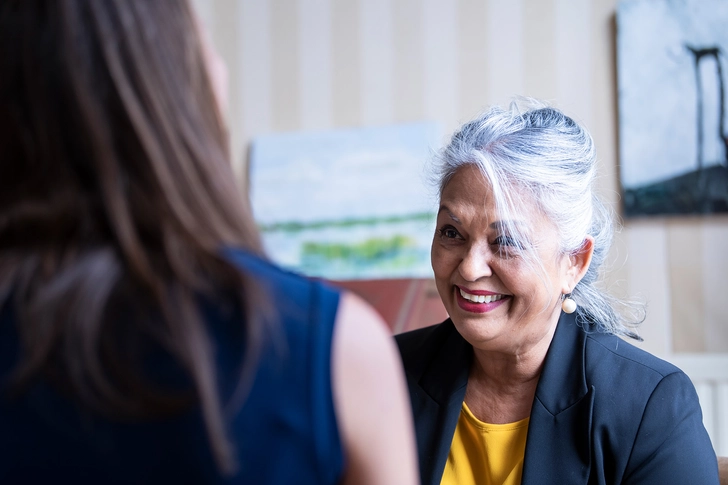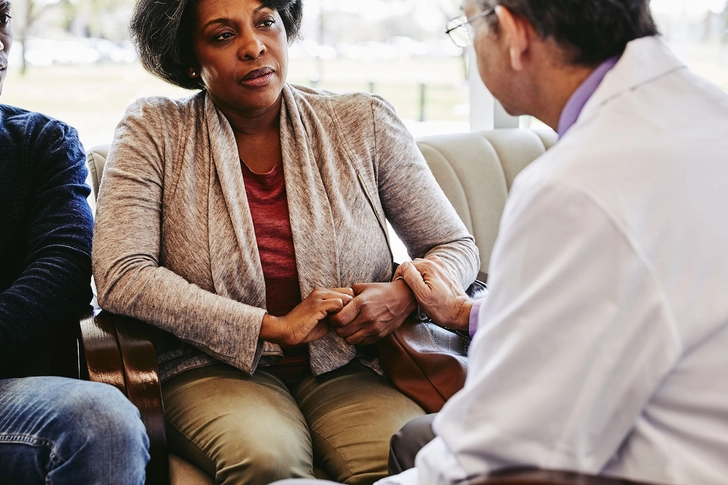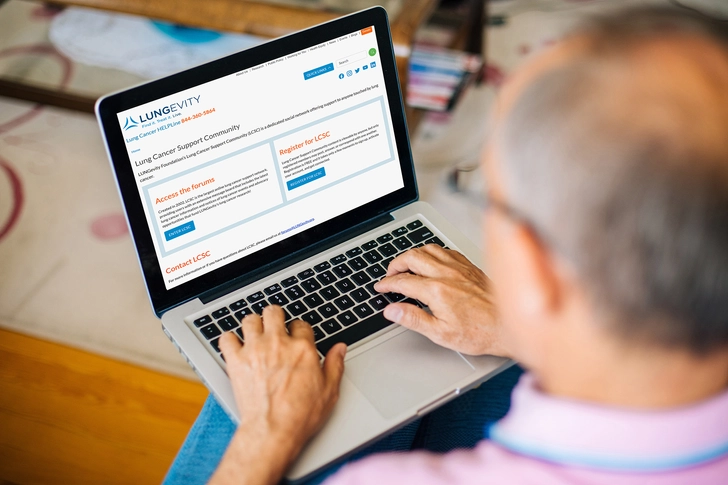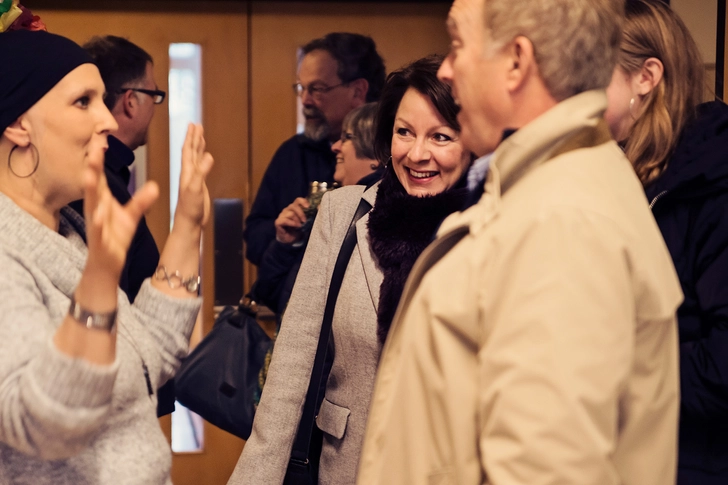- Overview
- Causes, Risks & Prevention
- Signs & Symptoms
- Tests & Diagnosis
- Your Lung Cancer Care Team
- Treatment
- Living With
- Remission & Recurrence
- Support & Resources
- Appointment Prep
- View Full Guide
People Like Us: 10 Tips for Finding a Lung Cancer Community That’s Right for You


Why Is Lung Cancer Support Important?
When a person is diagnosed with lung cancer, it can be overwhelming. Not knowing what will happen or how to handle this new condition can cause panic. As much support is needed as possible. After being diagnosed, you should immediately look for sources of emotional, informational, and physical support. Connecting with those in similar situations and establishing a community can help you navigate this scary juncture in your life.

Build an Online Community
You are going to need educational and supportive outlets while going through treatment. Build an online community with people of all aspects associated with cancer. Organizations like MyLifeLine help to connect those diagnosed with lung cancer to caregivers, other patients, family, and friends to help reduce isolation, stress, and anxiety.

Seek Counseling
Social workers who specialize in cancer can offer support while helping you to cope with the emotional challenges of lung cancer. A resource like CancerCare.org can connect you to one of the leading lung cancer nonprofit organizations that provide counseling care.

Be Proactive in Health Equity Actions
Research and find outlets to explore health equity actively. These outlets should focus on advancing equity in cancer care and on working to reduce disparities caused by cancer.

Gain Access to Forums
Organizations like LUNGevity Lung Cancer Support community provide users with large message boards that include the latest lung cancer periodicals and information. They also provide advocacy opportunities and notices of lung cancer events that fund cancer research.

Bond with Community Partners
Many times, local partners can be found that provide access to lung cancer resources. They often partner with larger organizations to find help. The American Lung Association connects patients, caregivers, friends, and families for inspiration and support after a lung cancer diagnosis.

Connect with Education Workshops
Many times, workshops can be found locally or online. These workshops have leading experts in affairs regarding cancer that provide up-to-date information on issues related to cancer. Podcasts are usually available as well.

Visit a Location or Event
Whether you have cancer or support someone who does, there are a variety of programs led by professionals who can assist you in being better versed regarding lung cancer. Local newspapers, message boards, and online searches can be a good source for finding in-person events.

Register for a Lung Cancer Support Community Marketing Plan
Many times, lung cancer support community content can be seen by anyone. Registering and becoming a member, though, will allow you to post, answer, and correspond with others. Registration is free, and usually, it only takes a few minutes to get signed up and activated. Soon, your informational emails or mailings should begin.

Always Be Open and Direct
At the time of your diagnosis, make it clear to family and friends exactly what you will need from them. Outline every step that you are aware of regarding support and treatment. This way, everyone can function on the same page and become successful as a team.

Take Care of Yourself
Not everyone's diagnosis is the same. Not all treatments will be the same. You must find the best resources and support for yourself. Follow doctor's orders, get exercise, eat a healthy diet, and take the time to nurture yourself.
Photo Credits:
1. SDI Productions / Getty Images
2. Tetra Images / Getty Images
3. Lucy Lambriex / Getty Images
4. The Good Brigade / Getty Images
5. agrobacter / Getty Images
6. martinedoucet / Getty Images
7. BraunS / Getty Images
8. Robert Kneschke / EyeEm / Getty Images
9. Peter Dazeley / Getty Images
10. petekarici / Getty Images
11. Thomas Barwick / Getty Images
SOURCES:
Cancer Support Community: “Everyone's cancer is unique. Your support should be too.”
CancerCare.org: “Lung Cancer.”
Lungevity: “Lung Cancer Support Community.”
Inspire: “Lung Cancer Survivors.”
CancerCare.org: “Lung Cancer.”
Go 2 Foundation for Lung Cancer: “5 Tips to Help Your Loved One with Lung Cancer.”